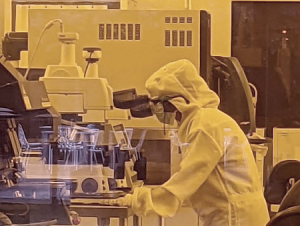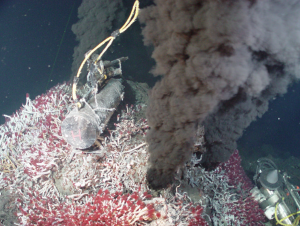To request a media interview, please reach out to experts using the faculty directories for each of our six schools, or contact Jess Hunt-Ralston, College of Sciences communications director. A list of faculty experts is also available to journalists upon request.
Latest News
In his tenure as a faculty member at Tech, Alonzo Whyte, academic advisor for both the Health and Medical Sciences Minor and the B.S. in Neuroscience program, has seen a diversity of routes that students take on the path to a pre-health career. Today he shares some advice on success stories, mistakes to avoid, and resources to explore.
An interdisciplinary team of Georgia Tech researchers are pushing the boundaries of microelectronics technologies and showcasing their work at this month's IEEE International Electron Devices Meeting (IEDM).
Georgia Tech scientists and engineers are building a new DOE-funded instrument that captures 3D images of plant-microbe chemical reactions underground in an interdisciplinary effort to develop biofuels and fertilizers — and help mitigate climate change.
Chris Reinhard, School of Earth and Atmospheric Sciences associate professor, co-authors a new theory about the Earth's phosphorus cycle, which could give scientists a better chance to detect signs of life on other rocky planets in the search for habitable worlds.
For over 30 years, Georgia Tech-Lorraine has led the European presence in Georgia Tech’s commitment to academics, research, and innovation. Now, the campus joins an extensive network of universities and industry partners throughout Europe with that same commitment.
A new cohort study, led by researchers at Emory University in collaboration with Pengfei Liu and Rodney Weber of Georgia Tech's School of Earth and Atmospheric Sciences, shows that long-term exposure to air pollution may increase the risks for developing dementia and Alzheimer’s disease.







